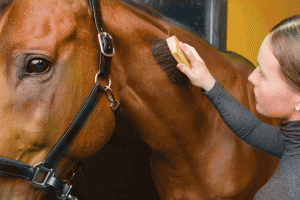 You finally made it. You’ve worked hard, made tough decisions and sacrifices and have been fortunate enough to realize your dream of one day owning a Florida Horse farm. Five acres or five hundred, it doesn’t matter the size or number of horses, all farms require routine attention. Animal care, stall cleaning, pasture management, fencing, water and security are all daily concerns.
You finally made it. You’ve worked hard, made tough decisions and sacrifices and have been fortunate enough to realize your dream of one day owning a Florida Horse farm. Five acres or five hundred, it doesn’t matter the size or number of horses, all farms require routine attention. Animal care, stall cleaning, pasture management, fencing, water and security are all daily concerns.
So, now that you have a horse farm, what do you do when you have to be out of town? Unlike a home with no animals, you can’t just set the security code, lock the door and leave.
Put together an out of town plan before it becomes urgent, when you’ve got time to think things through. Even though most extended stays are planned, you could get called away or something might happen that would prevent you from performing your daily chores.
Each farm has its own routine. Most training barns wake up with the sun. Other farms get going later and may not shut down until sundown or later. Regardless, horses are creatures of habit. They know when it’s feeding time, who goes in which feed pen and what order they come in. It’s a good idea to have someone: a family member, friend, neighbor or employee learn your farm’s routine in case you have to leave unexpectedly.
Make a list of daily activities. Begin with feeding instructions: what time (morning and afternoon), how much and what each horse eats, any individual top dressings, supplements and/or medications. Note any special instructions (example: the grey mare takes longer to eat, don’t turn the black horse out before the bay). Describe when and how to feed hay. Water should be checked and filled. Even automatic waterers should be checked at least once a day to make sure they are functioning properly and don’t have any dead animals or other debris that would keep horses from drinking.
When a problem arises, you know what and where the tools and materials needed are located. Additionally, if you need help or professional services such as a farrier or veterinarian you know who to call. Write down important names and phone numbers and post them in an easily accessible place like by the barn phone or by the feed. The pressure tank is a great place to post well service contact information.
 Even though you may have had several friends volunteer to look after your farm because they think it will be fun, make sure to get someone with horse experience. There are a lot of people that can feed horses and make sure the gates are locked and the fences aren’t falling down.
Even though you may have had several friends volunteer to look after your farm because they think it will be fun, make sure to get someone with horse experience. There are a lot of people that can feed horses and make sure the gates are locked and the fences aren’t falling down.
I’ve used several different horse sitters. I’ll call and have them meet me at our place during a “normal” feeding time and walk them through the process so they can see how we do things. We’ll discuss hay and water. I’ll give them written feeding instructions and a list of important phone numbers. I’ll also show them where we keep basic tools and equipment: fuse box, first aid items, hammers, nails, fence boards, etc. The best horse sitters by far have been those with horses of their own. They don’t just feed and go, they take the time to look at the animals and observe the horses’ behavior.
Parents with small children would never think about hiring an inexperienced baby sitter. Matter of fact, they usually have a network of family and friends with comparable needs that can recommend qualified, responsible, experienced baby sitters. If you haven’t done so already, check with neighbors and friends that have horse needs similar to yours and ask them who they use when they have to be gone for a few days. A little bit of thought and planning, along with confidence in a dependable experienced horse sitter can make your time away from your farm more enjoyable and less stressful.
 0
0
